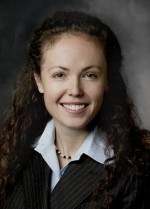
A Note from Your Chapter President
As healthcare leaders we too contribute to a better world for our peers, staff, patients, and their family members through every action we create and reaction we demonstrate. We come to our work each day with a purpose of creating a compassionate work environment. Whether we are early careerists, senior executives, individual contributors, new managers, etc., compassion is essential to our work in healthcare. Compassion is a dynamic concept and one of “empathic concern coupled with motivation to relieve the suffering of another” as described by Paquita de Zulueta in a recent article in the Journal of Healthcare Leadership titled “Developing Compassionate Leadership in Health Care: An Integrative Review.” (August 2015)
“Developing leadership for compassionate care requires acknowledging and making provision for the difficulties and challenges of working in an anxiety-laden context. This means providing appropriate training and well-being programs; sustaining high levels of trust and mutually supportive interpersonal connections; and fostering the sharing of knowledge, skills, and workload across silos. It requires enabling people to experiment without fear of reprisal, to reflect on their work, and to view errors as opportunities for learning and improvement. Tasks and relational care need to be integrated into a coherent unity, creating space for real dialog between patients, clinicians, and managers, so that together they can co-create ways to flourish in the context of illness and dying.” (P. de Zulueta PC, August 2015)
This dialog is what creates the care process. As the Institute for Patient Family-Centered Care reminds us, care is given “with us” and never “to us.” “In a compassionate health care system,…staff feel empowered to show attentive kindness, to be attuned to their own needs and those of their patients, and are free to take appropriate actions to relieve suffering. Patients have their physical, psychological, and spiritual needs attended to. They feel safe and their dignity restored or preserved…. There is time to care and space to reflect and recharge. Compassionate leadership in turn catalyzes, fosters, and sustains compassionate health care.” (P. de Zulueta, PC, 2015) It is this care of ourselves that catalyzes the care for our work and of others, which in turn fosters the caregiving process for our patients and their families.
Prioritization and responsibility for our own self-care and health comes from informed mindfulness. “Informed mindfulness is a concept that connects mindful self-awareness and self- regulation with educated decision-making. The mindful person is aware, non- judgmentally, of what is occurring in the present moment and understands that his or her response is a choice. With informed mindfulness, as situations arise and decision points are faced, that same person is able to place what is happening in its larger context and, having clear values and being sufficiently educated, make an informed choice in that moment. This concept — self-awareness and self-regulation coupled with knowledge, skills, values, and wisdom — forms the foundation of leadership. (A. Perlman, et al, The Pebble in the Pond: How Integrative Leadership Can Bring About Transformation, Duke Integrative Medicine, 2014)
My wish for all of us as we prepare for 2018 is one of health, courage, and mindful awareness of the needs and desires of those we work alongside and with each day. It is this appreciation of ourselves and each other that allows us to realize the potential we have to create the positive changes we strive to bring to the world.
I want to thank each of you for being a part of CAHL and ACHE. Some of you have just recently joined CAHL, and we look forward to getting to know you better. Many of you have been with our chapter for quite some time, and we are grateful for our CAHL family. Our industry is one that brings us together around intricately mission-driven work. It is this sense of mission-driven work that keeps us focused on doing what is right for our patients and communities. Thank you for making CAHL a part of your professional community. As I complete my term as chapter president, I am grateful for the work we have built together, and I look forward to continuing to work closely with our chapter. I am especially honored to hand the reins over to Toby Marsh, RN, MSA, MSN, FACHE, NEA-BC, who will begin his term as chapter president January 2018. Toby is the Chief Nursing and Patient Care Services Officer for UC Davis Medical Center. He is especially grounded, mindful, and innovative in his leadership style, and CAHL is fortunate to have an outstanding volunteer leader in Toby.
Finally, I’d like to thank our CAHL sponsors for their continued commitment to our chapter. Without such sponsorship, support for the programming that CAHL produces would not be possible. Our 2017 Platinum Sponsors include: Community Medical Centers of Fresno, California, HealthTrust, and University of the Pacific (UOP). Additionally, CAHL is grateful for the Silver Sponsorships from Expense Reduction Analysts and Walden University and our Bronze Sponsorships from Language World Services and One-Stop MedEx.
With care,
Laura Hill Temmerman, FACHE
